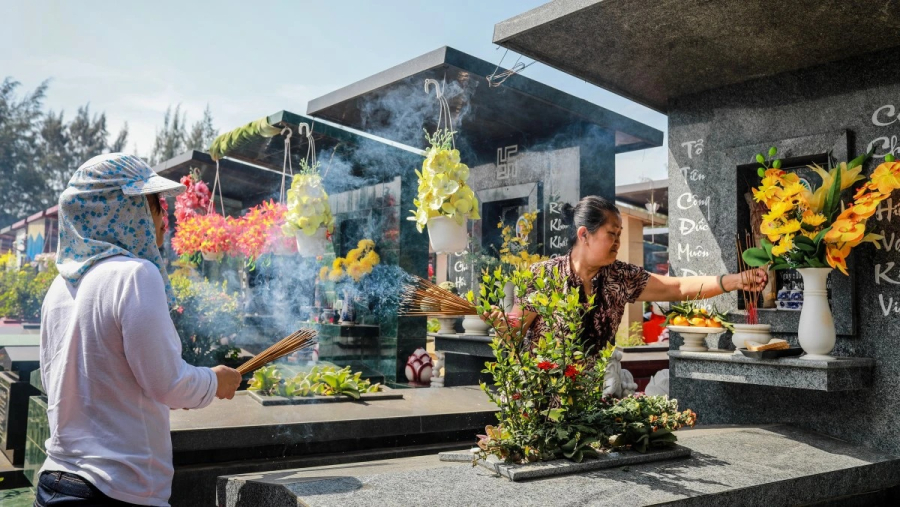Visiting ancestors’ graves is an occasion for the whole family to pay respects to the deceased. It is a cultural tradition of the Vietnamese people to remind the younger generations of the moral values passed down by their forefathers.
According to customs, the grave-visiting ceremony is considered a common ancestral memorial day. When family members go to the graves, there will be others who prepare the altar to offer to the ancestors.
While taking care of their family graves, people also pay attention to unattended graves.
There are 3 auspicious days left for grave-visiting
Grave-visiting is usually done from the 20th to the 30th day of the lunar month, depending on the customs and culture of each region. Family members can refer to auspicious and inauspicious days in the lunar month of Chạp and choose a suitable day for the ceremony.

From now until the 30th day of Chạp, there are 3 best days for grave-visiting, which will help the younger generations receive the blessings of their ancestors and bring better luck in the upcoming year:
– 24th day of Chạp (January 15, 2023)
– 26th day of Chạp (January 17, 2023)
– 28th day of Chạp (January 19, 2023)
There are no specific regulations regarding the grave-visiting day, so families can choose a suitable day.
Note:
– The 23rd, 29th, and 30th days of Chạp are normal days.
– There are 3 inauspicious days from now until the 30th day of Chạp: the 22nd, 25th, and 27th lunar days (the 22nd and 27th lunar days are Tam nương days).
Necessary offerings for grave-visiting
Some basic offerings for grave-visiting include incense, lamps/candles, tea, alcohol, water, gold, betel leaves, and fruits… If possible, the family can prepare a vegetarian meal (rice, salt, honey, sweet rice, roasted rice…) and a salted meal (pork legs, boiled chicken, sausage, and alcohol).
Whether to offer a vegetarian or salted meal depends on the beliefs of each family, but on this day, many families choose to offer a vegetarian meal to limit violence and help the wandering souls find liberation.

After the ritual at the ancestral altar, people go outside the graves (each grave) to light incense and invite the ancestors home to celebrate Tet. It is not necessary to bring actual food to the graves – just incense, flowers, or a symbolic amount of gold (if available) will suffice.
Important notes for year-end grave-visiting
– Visit the graves at any time depending on weather conditions, convenient conditions, and personal health. But it is best to choose clear and warm days.
– During this occasion, parents often take their children to the graves, initially to familiarize them with the location of the graves, and later to teach them to respect and be grateful to their ancestors. Therefore, avoid going to the graves too early as the night dew has not yet dissipated. It is also not advisable to go too late as the evening and nighttime atmosphere can be heavy and not good for health.
– Do not visit the graves during rainy or stormy weather.
– The grave-visiting ceremony should not be ostentatious or costly. It should not be focused on the form or involve large amounts of burned gold, which is superstitious.
– Do not eat the food offered at the cemetery as it may cause gastrointestinal problems and have negative effects on digestion (not to mention the spiritual aspect).
– Do not joke or sit on the graves as it is considered disrespectful.
– Do not engage in meditation, qigong, or exercise at the gravesite as negative energy can easily enter the body.
– After grave-visiting, it is advisable to light a fire or take a ginger bath to purify oneself from any negative energy that may have clung to the body and clothes…
This information is for reference and personal experience.






























